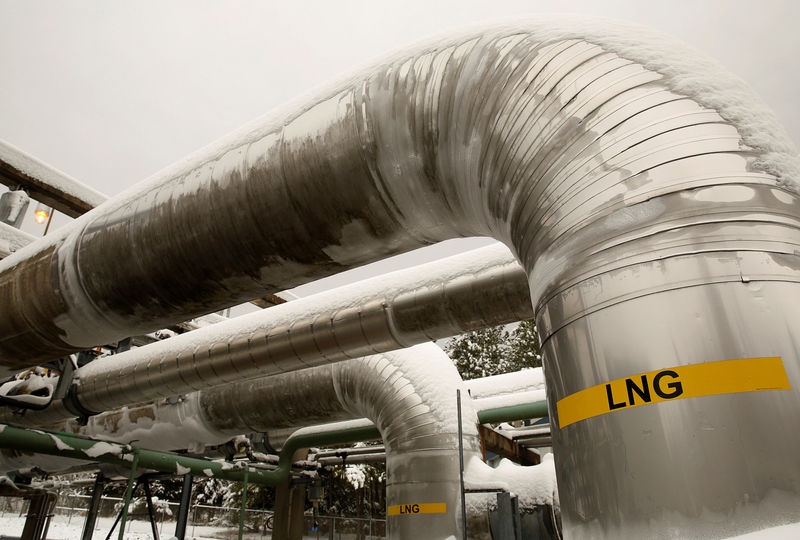(Bloomberg) --
The Dutch natural gas market is reinforcing its position as one of the most important trading hubs in the world.
Trade on the Dutch Title Transfer Facility, as the market is known, is surging as Europe increased imports from Russia, Norway and further afield via liquefied natural gas tankers. Natural gas futures open interest, a tally of outstanding contracts on the Intercontinental Exchange (NYSE:ICE) Inc., are at an all-time high in data going back to 2005.
Dutch gas futures trading volume on ICE has soared 24% this year after more than doubling in the previous two years. The pace of growth is impressive compared with the much larger U.S. Henry Hub benchmark, where futures turnover on CME Group Inc. (NASDAQ:CME) has declined from its 2018 peak.
The Dutch hub’s growing status is part of the LNG revolution. For decades, the fuel has been linked to U.S.-dollar-denominated oil in supply contracts, but the emergence of the Dutch market as the regional benchmark enabled utilities to take more control over how they pay for the billions of euros of gas imported every year. New LNG deals are also increasingly referencing the Dutch market and TTF is now used in Asian trades, too.
“TTF is the global market for gas,” Patrick Barouki, director of gas trading and origination at German utility Uniper SE (OTC:UNPRF), said at a conference in October. “Downstream liquidity is essential, showing enough use of gas, a variety of players, enabling people who are just speculating to take positions with confidence. TTF checks all the boxes.”
TTF trading volumes increased 43% to a record in 2019, according to Patrick Heather, senior research fellow at the Oxford Institute for Energy Studies. That’s more than three times the volume of the nearest rival in the U.K. and 11 times more than at the two German hubs combined.
The trading arm of Cheniere Inc., the biggest U.S. LNG supplier, bid for an LNG cargo for delivery to China at a price linked to TTF, instead of the North American Henry Hub benchmark, last month.
The Netherlands has gained “a lot of attention” in the U.S. since the end of last year, when the country exported record amounts of LNG to Europe, said Brayton Tom, a senior risk manager at Stonex Financial Inc. For U.S. sellers, the two primary basins to supply are Europe and Asia, and the price difference between them steers where their shipments are directed.
“I think it’s more ingrained as a normal product to trade, which means the liquidity is building and that it will be viewed as a broader LNG arb play going forward,” Tom said.
The ascendency of TTF has come at the expense of declining trade at other regional markets once dominated by the U.K.’s National Balancing Point hub. And Germany, while a bigger market in terms of consumption, remains much smaller than TTF by traded volume.
The Japan-Korea Marker, or JKM, the benchmark for LNG prices in North Asia, has increasingly tracked European prices. While liquidity of JKM futures on Intercontinental Exchange has jumped over the last few years, it is still not nearly as traded as TTF, therefore many Asia-based traders use European prices as a key spot rate indicator for deliveries into nations including Japan and India.
“TTF has become more popular with gas traders across the world,” said Harry Huang, head of gas, power & derivatives trading at PetroChina International in London. “In Asia, in the U.S., they trade TTF. It is getting to be one of the key benchmarks, just like crude oil.”
©2020 Bloomberg L.P.
